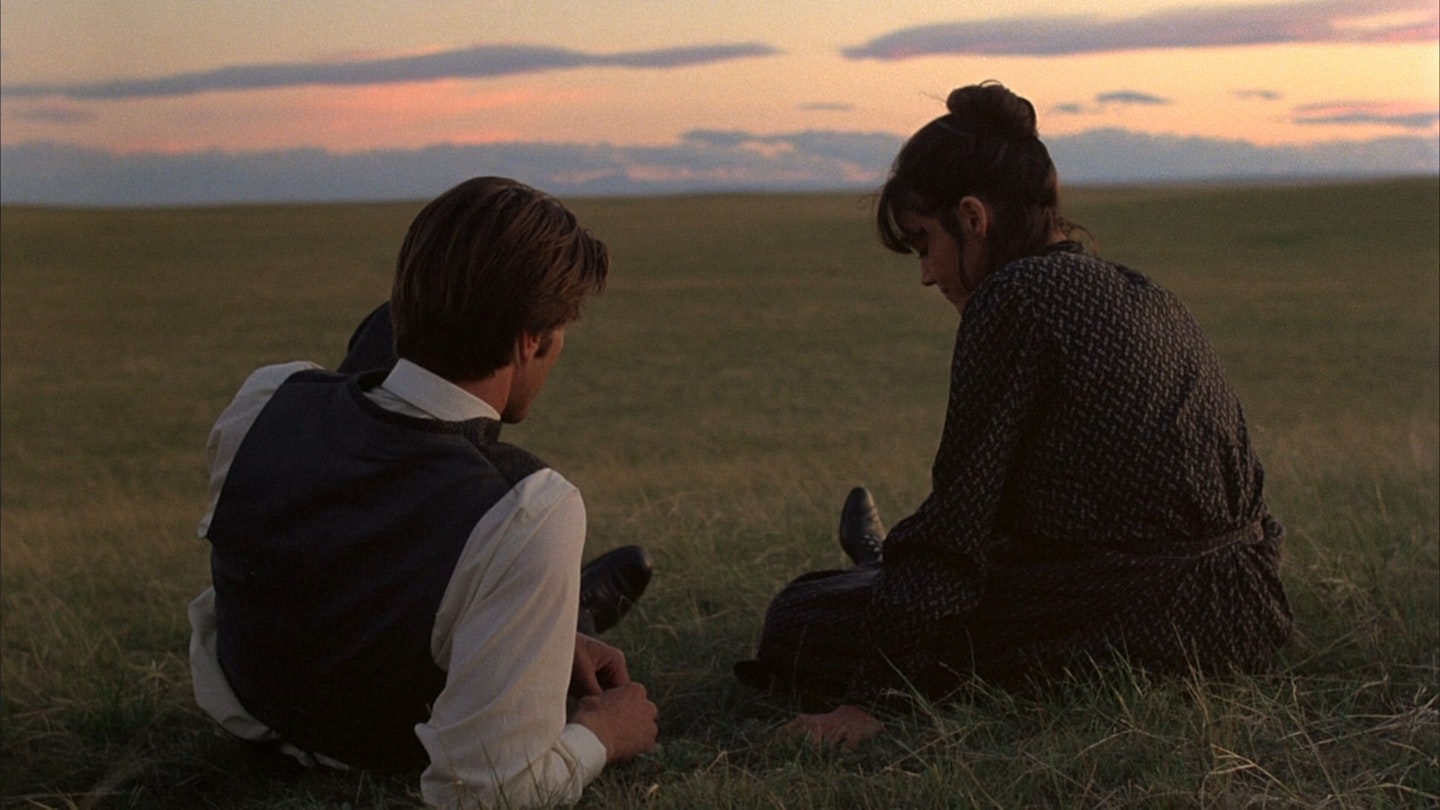The films of Terrence Malick, only four of them to date over a thirty-year career, are visual poems, testaments to his enflamed passion for natural beauty, but emotionally elusive and reluctant to directly engage the heart. Days Of Heaven, his second film, and his shortest, is a work of furtive gesture, a love-triangle set amongst the miraculous plains of wheat in that stretch beyond vision across the Mid-West.
Tossing out his script, Malick required his cast, led by Richard Gere but dominated by young Linda Manz, the film’s soulful observer (she gives a hauntingly literary narration), to invent their own lines, to feel out the story. It is a story told in small, obtuse movements where even dialogue is reduced to tiny fragments of a holistic whole.
Malick’s is a captivating modus, one so beautiful it almost transcends the simple purposes of film. Over a year of shooting, he coalesced his storyline into his themes, ever-present preoccupations about man’s frailty in the face of nature’s power and God’s indifference to our petty concerns.
The romantic travails of the three leads (a trio filled out by a doleful Sam Shepard and subdued romance of Brooke Adams) and the moral cost that will be meted out, is constantly contrasted with the sun burnished ocean of corn swept by languid breezes; the habitual drift of animals and birds, and the spare existence of these hermit workers flitting across a continent, an itinerant augur of the Depression to come. Rarely has a film bared itself to simple majesty (unless you count Malick’s other work), it feels epic yet runs barely over and hour and a half.
Nothing is ever truly said in Malick’s oblique approach, it is felt, sensed along its dreamlike path. True, if you fail to fall under his spell, it will likely translate as prettified pretension, gaseous, even wanky. But for converts, drugged out on his imagery, by the Biblical surge of its finale, a plague of locusts arriving like damnation, swallowing up the crop as these the heavenly days are consumed by hellfire, this is the towering, unconventional power of a true artist.
